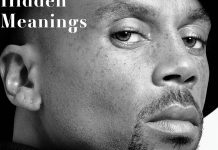
Natasha Trethewey
 Natasha Trethewey’s brave new book, Beyond Katrina (UGA Press, $22.95), is modeled on Robert Penn Warren’s Segregation. Warren had revisited his native South not long after the Brown v. Board of Education ruling—a figurative storm that changed the nation’s cultural landscape as dramatically as the very literal Hurricane Katrina altered the coast of Mississippi. Trethewey’s return to Gulfport, where she was born in 1966, began as a personal meditation on the lingering effects of the 2005 hurricane. When her beloved brother, Joe, lost everything in the storm and later made “a desperate decision” that landed him in prison, though, she decided to tell the wider story of the Gulf recovery through the prism of his experience. In poems, essays, and letters, Trethewey, who won the Pulitzer Prize for poetry in 2007 and teaches at Emory University, grapples with some of the dualities that define her as a person and propel her as an artist: black and white, native daughter and prodigal child, poet and documentarian. In one moving passage, Trethewey makes a private pilgrimage to her mother’s grave and a now vacant church lot. “Debris still littered the grass. Everywhere, there were pages torn from hymnals, Bibles, psalms pressed into the grass as if they were cemented there. I bent close, trying to read one; to someone driving by along the beach, I must have looked like a woman praying.”
Natasha Trethewey’s brave new book, Beyond Katrina (UGA Press, $22.95), is modeled on Robert Penn Warren’s Segregation. Warren had revisited his native South not long after the Brown v. Board of Education ruling—a figurative storm that changed the nation’s cultural landscape as dramatically as the very literal Hurricane Katrina altered the coast of Mississippi. Trethewey’s return to Gulfport, where she was born in 1966, began as a personal meditation on the lingering effects of the 2005 hurricane. When her beloved brother, Joe, lost everything in the storm and later made “a desperate decision” that landed him in prison, though, she decided to tell the wider story of the Gulf recovery through the prism of his experience. In poems, essays, and letters, Trethewey, who won the Pulitzer Prize for poetry in 2007 and teaches at Emory University, grapples with some of the dualities that define her as a person and propel her as an artist: black and white, native daughter and prodigal child, poet and documentarian. In one moving passage, Trethewey makes a private pilgrimage to her mother’s grave and a now vacant church lot. “Debris still littered the grass. Everywhere, there were pages torn from hymnals, Bibles, psalms pressed into the grass as if they were cemented there. I bent close, trying to read one; to someone driving by along the beach, I must have looked like a woman praying.”Trethewey on . . .
Home Gulfport is always home to me, because I think of it psychologically as the place that made me. But I imagine living my life somewhere else.
The Pulitzer effect I’d be lying if I said I didn’t like it. But I felt like this then, and I still feel like this now: It’s a great danger to bring either past failures or past successes anytime you sit down to write.
Reading the dictionary for fun Every single word is a poem! And when you read the history of a
word . . . I just love that.
Guilty reading pleasures I have to admit that I’m a fiend for academic fiction, on the low end and the high end. I just read P.F. Kluge’s Gone Tomorrow, an academic novel with a murder—in an English department, even. One of my colleagues told me about Jane Langton, who writes a lot of these English-department murder mysteries, including one at an Emily Dickinson symposium. I read these books like I would eat chocolate!
Also new . . .
Isabel Wilkerson, a Pulitzer Prize–winning journalist, spent more than a decade researching and writing this mesmerizing blend of history and narrative journalism. Using the lives of three people, the former Emory professor chronicles the migration of African Americans from the South to cities in the North and West, from World War I to the 1970s. “It was the first big step the nation’s servant class ever took without asking,” Wilkerson writes.
(Algonquin Books, $24.95)
Emory professor Joseph Skibell’s sweeping, fantastical novel begins in Vienna in the 1890s, on the night his protagonist meets Sigmund Freud, and ends in a Warsaw ghetto in the 1940s. By following the storied life of young Dr. Jakob Sammelsohn, a hopeless romantic, Skibell fashions a magnificent portrait of Eastern Europe and modern history.
(LSU Press, $18.95 paperback)
In this captivating love-hate story set in World War II–era New Orleans, the city itself is one of author Josh Russell’s greatest, most indelibly drawn characters: “Sweet flowers and sour booze, fried fish and rank garbage, baking bread and burning tires: New Orleans’s tricky balance of perfume and stink.” Russell teaches at Georgia State University.










![The North Carolina Museum of Natural Sciences’ newest exhibit is a [pre]historic first](https://cdn2.atlantamagazine.com/wp-content/uploads/sites/4/2024/04/DD-3-100x70.jpg)




